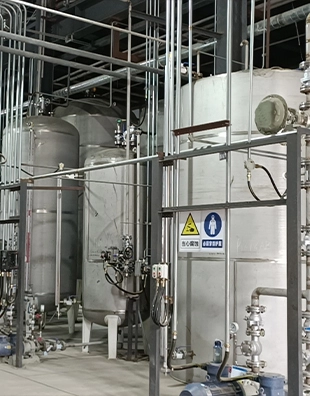flocculant chemicals for water treatment
Flocculant Chemicals for Water Treatment An Overview
Water treatment is an essential process in ensuring the provision of clean and safe drinking water, as well as managing wastewater effectively. Among the various chemicals used in this process, flocculants play a pivotal role. These substances facilitate the aggregation of suspended particles in water, helping them to settle and be removed more efficiently. This article delves into what flocculants are, their types, applications in water treatment, and the benefits they provide.
Understanding Flocculants
Flocculants are chemical agents that promote the clumping of particles in a liquid, which leads to the formation of larger aggregates known as flocs. These flocs can then be more easily separated from the water through processes such as sedimentation and filtration. Flocculation is typically preceded by a coagulation stage, where coagulants are added to destabilize negatively charged particles, preparing them to bond with the flocculants.
Types of Flocculants
There are two main categories of flocculants organic and inorganic.
1. Organic Flocculants These are usually derived from natural sources or are synthetic polymers. Common examples include polyacrylamide and starch derivatives. Organic flocculants tend to be more efficient at lower concentrations and can be tailored to specific water chemistries, making them versatile in various applications.
2. Inorganic Flocculants These are typically metal salts such as aluminum sulfate (alum) and ferric chloride. They have been used for decades in water treatment processes. Inorganic flocculants are generally cost-effective but may produce more sludge and require careful handling due to their chemical reactions with water components.
Applications in Water Treatment
Flocculants are crucial in multiple water treatment scenarios, including
- Drinking Water Treatment In municipal water treatment plants, flocculants help remove turbidity caused by suspended solids, bacteria, and other contaminants, thus ensuring that drinking water meets safety standards
.flocculant chemicals for water treatment

- Wastewater Treatment Flocculants assist in the removal of organic matter and suspended solids from industrial effluents. This process is vital for reducing environmental pollution before the treated water is discharged back into natural water bodies or reused.
- Sludge Management In both drinking water and wastewater treatment facilities, flocculants improve the dewatering process of sludge, making it easier to handle and dispose of.
Benefits of Using Flocculants
The utilization of flocculant chemicals offers numerous advantages
1. Enhanced Water Quality By effectively removing suspended particles and contaminants, flocculants contribute significantly to improving the overall quality of water, making it safer for consumption.
2. Cost-Effectiveness Although the initial cost of flocculants may vary, their efficiency at lower doses can result in overall savings in treatment processes.
3. Flexibility and Customization Different water sources exhibit varying characteristics; thus, flocculants can be tailored to meet specific treatment needs, optimizing the process for varying contaminant types.
4. Environmental Protection Properly treated water reduces the likelihood of pollutants entering aquatic ecosystems, minimizing negative impacts on flora and fauna.
Conclusion
Flocculant chemicals are vital components in the water treatment industry, serving to enhance water quality and ensure safe consumable supplies. With various types of flocculants available, water treatment plants can select the most appropriate agents based on specific needs and conditions. As water scarcity and pollution continue to challenge global communities, the importance of effective water treatment solutions, including the use of flocculants, will only increase, underscoring their role in sustainable water management practices for the future.
-
Pbtc Scale InhibitorPBTC: A Scale Protector for Industrial Water TreatmentNewsAug.05,2025
-
Organic Phosphonate: An Efficient Defender in the Field of Scale InhibitionNewsAug.05,2025
-
Hydrolyzed Polymaleic Anhydride: Green Pioneer in Scale Inhibition FieldNewsAug.05,2025
-
PAPEMP Polyamino Polyether Methylene Phosphonic Acid For SaleNewsAug.05,2025
-
Flocculant Water Treatment: A Pioneer in Purification in the Field of Water TreatmentNewsAug.05,2025
-
Benzyl Isothiazolinone: An Efficient and Broad-Spectrum Antibacterial Protective GuardNewsAug.05,2025





